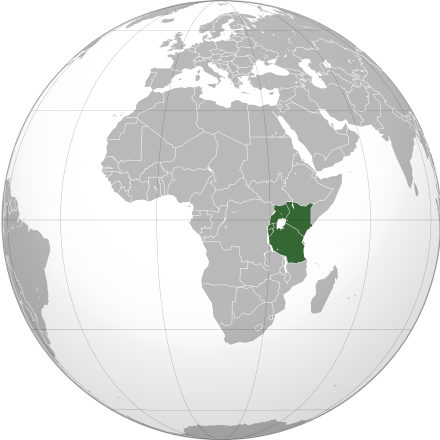Ugandan anti-gay law is dead, but court challenge lives on
Colin Stewart is a 45-year journalism veteran living in Southern…

A legal battle continues against Uganda’s now-defunct Anti-Homosexuality Act, led by the Human Rights Awareness and Promotion Forum (HRAPF), a gay-friendly legal advocacy group in Uganda.
HRAPF will not be joined in the case by the UHAI East African Sexual Health and Rights Initiative (UHAI-EASHRI) or the Health Development Initiative-Rwanda (HDI-Rwanda), because the East African Court of Justice yesterday rejected their requests to be accepted as “amici curiae.” (That status, which means “friends of the court” allows submission of legal arguments by parties not directly involved in a case).
HRAPF is seeking a ruling by the Tanzania-based East African Court that will make clear that anti-gay laws such as the Ugandan Anti-Homosexuality Act are unacceptable throughout East Africa.
Uganda’s Constitutional Court overturned the law on Aug. 1 on procedural grounds — the lack of a quorum in Parliament — but did not address claims that the law violated Ugandan constitutional guarantees of human rights.
In the East African Court case, in early 2014, activists seek a ruling that the law violated provisions of the African Charter on Human and Peoples’ Rights, which Uganda accepted in joining the East African Community.

Adrian Jjuuko, executive director of HRAPF, summarized the court’s explanation for its decision, starting with the HDI Rwanda rejection:
“This was on the basis that HDI did not have ‘interest’ in the matter since its founding documents restrict it to work in only Rwanda and yet the AHA is a strictly Uganda law applicable only in Uganda. UHAI EASHRI was found to have ‘interest’ in the matter since their founding documents allow them to work in the whole region, but their application too was dismissed because they could not be ‘neutral’ since they have a partisan interest in the matter.
“Despite this outcome, we applaud UHAI EASHRI and HDI standing up and taking the decision, time, and resources required to apply to be joined as amicii. “
HRAPF provides legal assistance to LGBTI defendants in Uganda under the umbrella of the Civil Society Coalition on Human Rights and Constitutional Law (CSCHRCL), a coalition of 50 organizations opposed to the Anti-Homosexuality Act.

Last year, HRAPF and CSCHRCL said that reasons for pursuing the case include:
“There are real chances of an amended Anti-Homosexuality Bill being brought to Uganda’s Parliament as well as to other parliaments in the region (most notably Kenya and Tanzania); if successful, the [case] would make clear to law makers that such a Bill would contravene the East African treaty.”
Member countries of the East African Community are Burundi, Kenya, Rwanda, Tanzania and Uganda.
The HRAPF challenge is limited to three sections of the Anti-Homosexuality Law:
- A section that grants immunity against prosecution to “victims” of homosexuality who commit crimes when “protecting” themselves against homosexuality.
- A section that forbids aiding and abetting homosexuality.
- A section “on promotion of homosexuality, which provisions are directly in violation of the fundamental principles of good governance, rule of law and human rights, enshrined in the EAC Treaty.”

Before it was overturned on procedural grounds, the Anti-Homosexuality Act provided for:
- Life imprisonment for same-sex intimacy involving penetration — the same punishment currently provided under existing Ugandan law.
- Life imprisonment for anyone who “touches another person with the intention of committing the act of homosexuality.”
- Forced medical examinations for anyone accused of being HIV-positive and of committing homosexual acts, which is termed “aggravated homosexuality,” also punishable by life imprisonment.
- Seven years in prison for attempts at committing “the offense of homosexuality.”
- Life imprisonment for HIV-positive people who attempt to commit “the offense of homosexuality.”
- Seven years in prison for anyone who “aids, abets, counsels or procures another to engage in acts of homosexuality.” LGBT rights activists fear that this provision and the next one will be used against them.
- Life imprisonment for same-sex marriage. (The Ugandan constitution already prohibited same-sex marriage.)
- Up to seven years in prison for conducting a same-sex wedding ceremony.
- Imprisonment for seven years for the “director or proprietor or promoter” of a company or association that is convicted of “promoting homosexuality.” In addition, the organization’s certificate of registration would be canceled.
The law also provided for five to seven years in prison for:
- Anyone who “attempts to promote or in any way abets homosexuality and related practices.”
- Publishing “pornographic materials for purposes of promoting homosexuality.”
- Anyone who “funds or sponsors homosexuality or other related activities.”
- Anyone who “offers premises and other related fixed or movable assets for purposes of homosexuality or promoting homosexuality.” Landlords who rent to LGBT rights groups are liable to imprisonment too.
- Anyone who “uses electronic devices which include internet, films, mobile phones for purposes of homosexuality or promoting homosexuality.”
Related articles
- Challenge to Ugandan anti-gay law seeks regional impact (November, 2014)
- Ugandan court overturns anti-gay law (August 2014, 76crimes.com)



I guess that getaway to Kampala is out of the question now…)